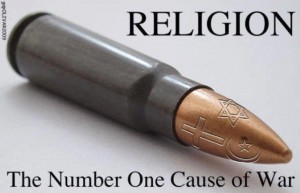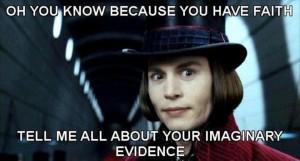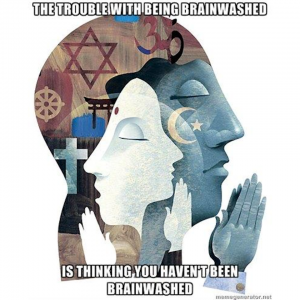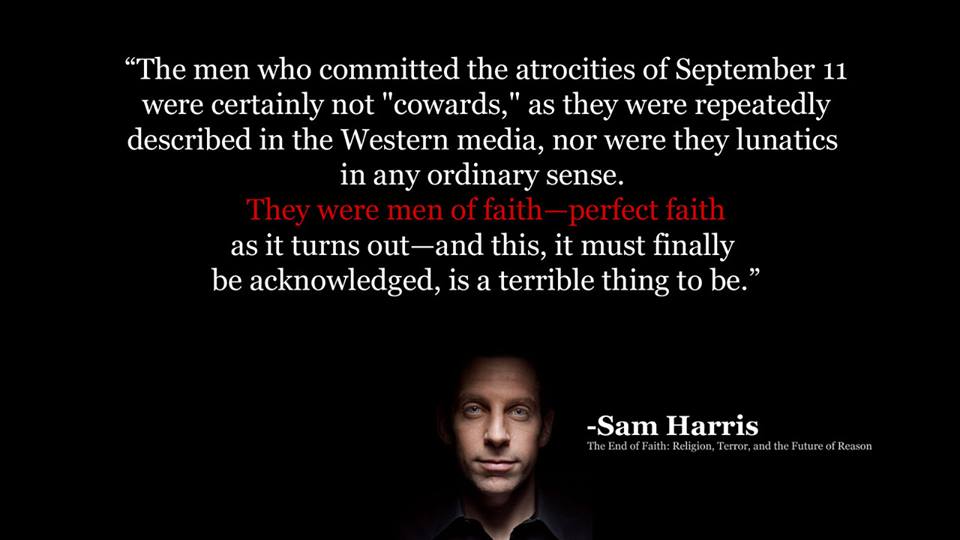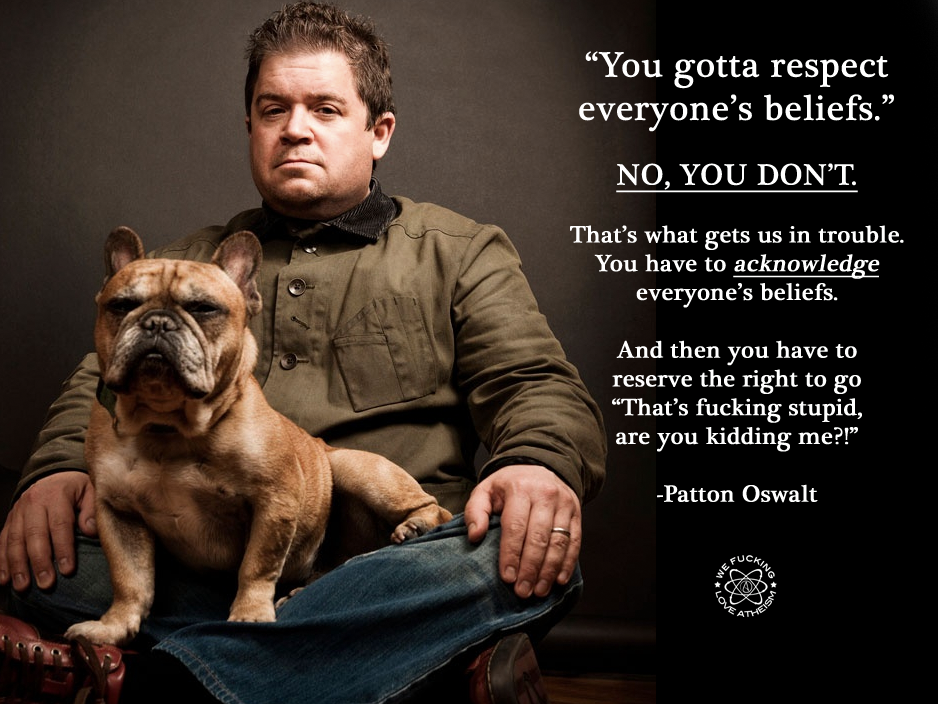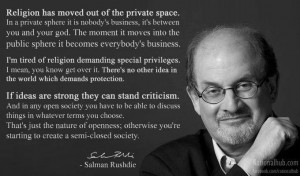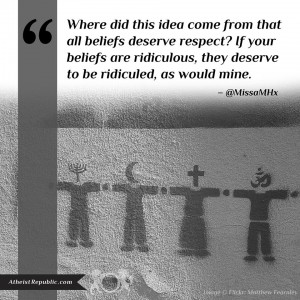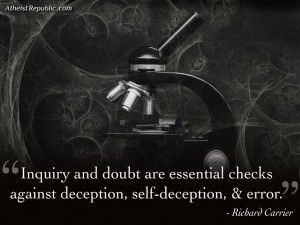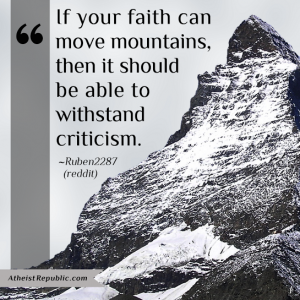
Christianity Exposed
Hallo internet surfer!
 Welcome to my website, a place that introduces a discussion about the validity of the Christian Bible, Christian beliefs and churches. I believe we should all have a serious interest in these topics. Why?
Welcome to my website, a place that introduces a discussion about the validity of the Christian Bible, Christian beliefs and churches. I believe we should all have a serious interest in these topics. Why?
On September 11, 2001, Islamic terrorists killed nearly three thousand innocent people. The world was shocked, and wanted to know why. Those responsible were young suicidal Islamists who thought they would go straight to paradise. Some Muslims thanked Allah for the damage done to America. It became obvious that Islamic beliefs were a significant part of the issue, and the attack probably would not have happened if America thought Allah was great.
George W. Bush was outraged. He had to find a way to retaliate. He is a committed fundamentalist Christian – so he asked his God for advice! He then believed he became God’s spokesman; he said
“I trust God speaks through me. Without that, I couldn’t do my job.”
Some prominent American Christians publicly pressured him to go to war.

Bush defied the United Nations and took America and a “coalition of the willing” to war in Afghanistan and Iraq. He claimed he was out to get those responsible, and that Islam was a false religion. He said:
“And I just—I cannot speak strongly enough about how we must collectively get after those who kill in the name of—in the name of some kind of false religion.”
In my opinion if Afghanistan and Iraq were Christian countries, countries with a “true religion,” Bush would not have started wars with them.
Over a hundred thousand people would still be alive, many more on both sides would not have been traumatized, and the America government would not be in so much debt.
In 2008, Bush spoke brashly of an unbreakable bond uniting Israel and America, Jews and Christians, when he addressed the Israeli parliament:
“The alliance between our governments is unbreakable, yet the source of our friendship runs deeper than any treaty. It is grounded in the shared spirit of our people, the bonds of the Book, the ties of the soul.”
He was talking about the Old Testament. His audience responded to this rhetoric with rapturous applause. Some powerful Christians and Jews obviously consider each other allies because of deep-rooted religious prejudices. That is a rather novel position, as many Christians have persecuted Jews for the last seventeen hundred years. Both have at times been in conflict with Islamists over the last thirteen hundred years.
All three religions are said to worship the same celestial dictator, a character who was one of the gods first conceived by the ancient Hebrews, although each calls him by a different name. Despite sharing the same entity for a god, each is adamant that details of the other two’s dogmas are invalid. As a direct consequence of these disparate religious beliefs, there is a powerful religious undercurrent poisoning today’s international relations.
 Churches have committed atrocities throughout the ages. Many have used violence to grab power, accumulate riches and convert natives. Their methods may have changed, but their greedy agenda has not. In modern times, some of them are still powerful and wealthy, and are closely linked with the world’s governments, stock markets, and financial institutions. The Vatican, for example, is one of the world’s wealthiest institutions; it is estimated that the Holy See presently owns 10 – 15 per cent of all the shares registered on the Italian Stock Exchange. (http://www.cai.org/bible-studies/vatican- billions).
Churches have committed atrocities throughout the ages. Many have used violence to grab power, accumulate riches and convert natives. Their methods may have changed, but their greedy agenda has not. In modern times, some of them are still powerful and wealthy, and are closely linked with the world’s governments, stock markets, and financial institutions. The Vatican, for example, is one of the world’s wealthiest institutions; it is estimated that the Holy See presently owns 10 – 15 per cent of all the shares registered on the Italian Stock Exchange. (http://www.cai.org/bible-studies/vatican- billions).
They frequently entertain and lobby the world’s leaders in Rome to shore up their own power.
Politicians are very aware of the voting power of Christians, particularly in the USA.
Churches are a diverse bunch, yet they all have one thing in common: the Bible, the basis of belief. Most discussions about Christianity are ultimately based on its legitimacy. Ever since it was first compiled it has been the most important and influential book in the western world. It colors peoples’ attitudes to non-Christians, war, women, sexuality, law, science, and learning.
Every day clergymen give their opinions from the pulpit and through the media, preaching to people on social, moral, and even scientific issues. In America, some Churches even own television and radio stations. Churches educate a large proportion of the western world’s children. Amazingly, most of their activities are financed by tax-free money.
I have spent many years researching the history of the Bible and early Christianity. They are big topics. To put them in perspective requires a solid perception of antiquity and much open-minded thought. One has to dismiss a load of unsubstantiated claims.
I want to make these topics easier to understand by sharing what I have discovered. Having learnt what I have, I hope to help make the Christian myth transparent, so that fewer people take it seriously.
Most Christians have been told to assume that everything they need to know about the Bible is there in its pages, but this is misleading. It is imperative to understand the literary, social and political contexts in which the Bible was written to get a complete understanding. Some basic questions about the Bible beg for answers, such as:
- Who wrote it?
- Where did the authors source their facts?
- What were their aims?
- Who were the ancient Hebrews?
- Who was Yahweh?
- What was the social and political climate like in Galilee in Jesus’ day?
- Who was the real Jesus?
- Did he really outwit the laws of nature?
- Are his teachings ethical?
- Did he rise from the dead?
- Did he sacrifice himself for someone else’s sins?
- Who were James, Peter and Paul?
- Has Christian teaching benefited the world?
- Is cherry picking and interpreting the Bible valid?
- Why do Churches exist?
 Children often ask questions like these because they have an unbridled, natural curiosity and a good sense of what is real and reasonable. Their willingness to question puts some adults to shame.
Children often ask questions like these because they have an unbridled, natural curiosity and a good sense of what is real and reasonable. Their willingness to question puts some adults to shame.
My book is mainly an assimilation of credible opinions drawn from an enormous Biblical scholarly community, many of which are relatively recent. I also include some of my own assessments of primary sources. My aim is to present a good overview without getting bogged down in too much detail. To me, it is apparent that the general public is not aware of the important conclusions arrived at from a study of all this scholarly work. As a result, there has been a deep chasm between academic historians and the general public, and I want to breach it.
A great many Christians have been told they should just accept the Bible’s authority; that they must have faith. Yet faith, in the religious sense, is the belief in something for which there is no good evidence. It is just a nice word for wishful thinking, bias, or superstition, has no intellectual merit, and is no substitute for honest enquiry.
This website, and my book, discusses facts and informed opinions, not faith.
Some people claim that to question their religion is offensive. I think they are afraid of what may be discovered. What is more, Christian commanders over the centuries have clearly berated other’s beliefs. God allegedly attacked non – Jews in the Old Testament. Jesus threatened to kill anyone who did not worship him (see Luke 19:27.) Paul, the man who invented Christian theology, was highly critical of other’s beliefs. Throughout history Christians have repeatedly derided Islamists and Jews. So it is hypocritical for Christian authorities to cry foul when their own beliefs are questioned.
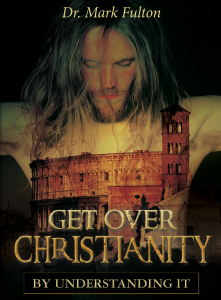 My book is unique for a number of reasons. Unlike most books about the Bible, it will not be found in a Christian bookstore. I am not afraid to compare real history with the conventional Christian story, something that many authors only half-heartedly do because it is too controversial, too hard, and may alienate some readers. I take that risk.
My book is unique for a number of reasons. Unlike most books about the Bible, it will not be found in a Christian bookstore. I am not afraid to compare real history with the conventional Christian story, something that many authors only half-heartedly do because it is too controversial, too hard, and may alienate some readers. I take that risk.
There are hundreds of links to web pages throughout this website, and nearly one thousand in my book. If I make a point that the reader feels needs clarification or that they would like to know more about, there is often a link that opens up a relevant page, website or documentary. So the reader has wonderful resources at their fingertips. The links can be ignored without compromising the text’s flow. The internet references given refer to the topics discussed in a broader context, so the reader can see many issues from different angles.
I think I have unraveled the real story of Christianity, and my conclusions, based on truthful facts, rock the very foundations of the faith. The truth is important. After reading this book, your conclusions may not be exactly the same as mine, but yours will be enriched.
This website and book will appeal to intelligent, inquisitive people who are interested in history, the role of today’s Christianity in a social, political and psychological context, and how to best educate their children.
If you are a Christian, try to remain open-minded as you come with me on a journey through history. Please do not get turned off if I challenge what you have always thought. Instead, have some patience, maybe read around the issue, and you will ultimately may change your mind when the pieces of the puzzle start to fit.
If you are not open-minded and curious about history, do not waste your time reading any further.
Please note that the posts on this website are taken from my book, “Get Over Christianity by Understanding It.” The book, which is about 220,000 words, presents the whole story in a logical sequence, and ties up all the loose ends.
References:
http://www.dubyaspeak.com/theologian/2004
http://thedarkskindisbeliever.blogspot.com/2010/09/monday-morning-moron-george-w-bush.html
see http://history-perspective.com/critical_theories.html for the barest outline of the history of Bible exegesis
http://www.youtube.com/watch?v=-h9XntsSEro&feature=bf_next&list=PL85F1EE32A438AEB8
http://www.youtube.com/watch?feature=player_embedded&v=0iVCxx-G


